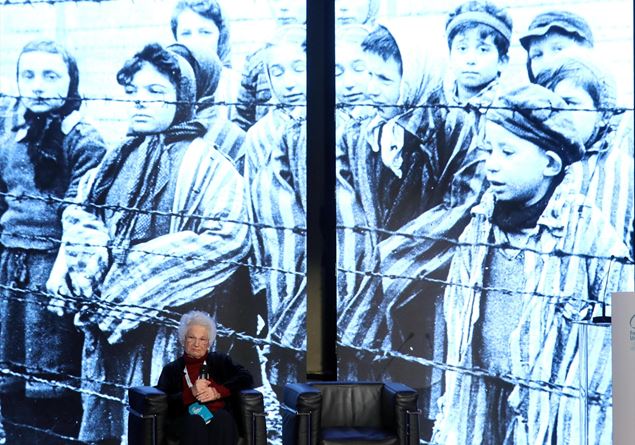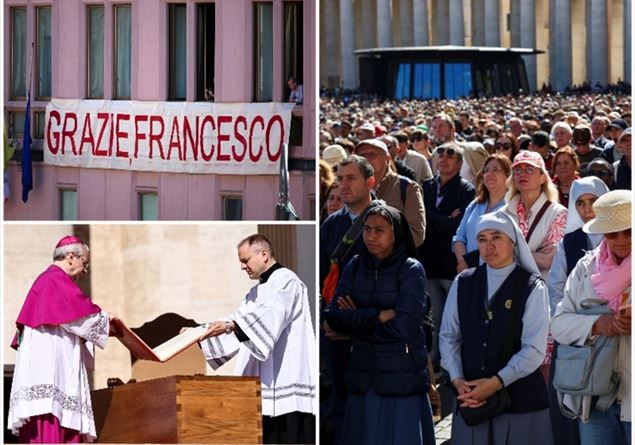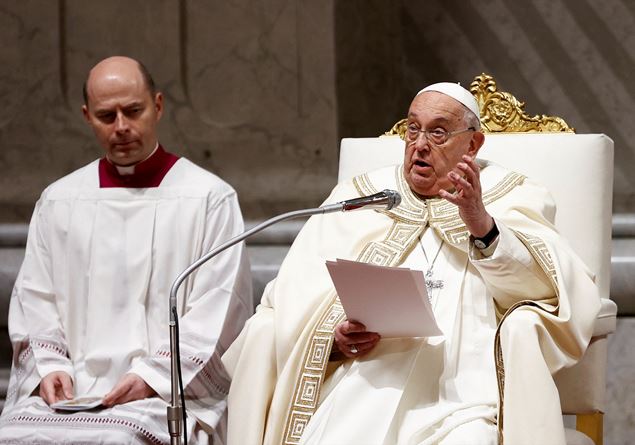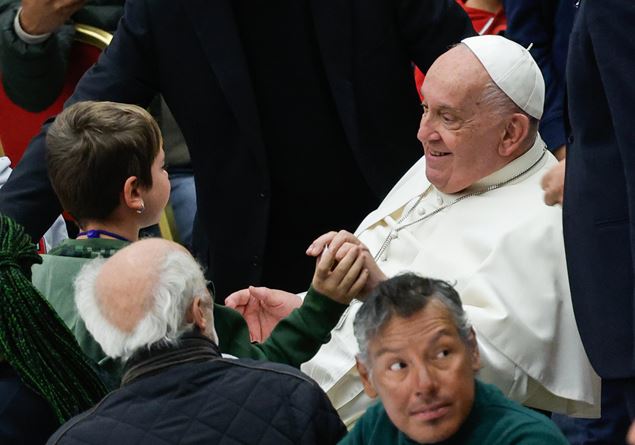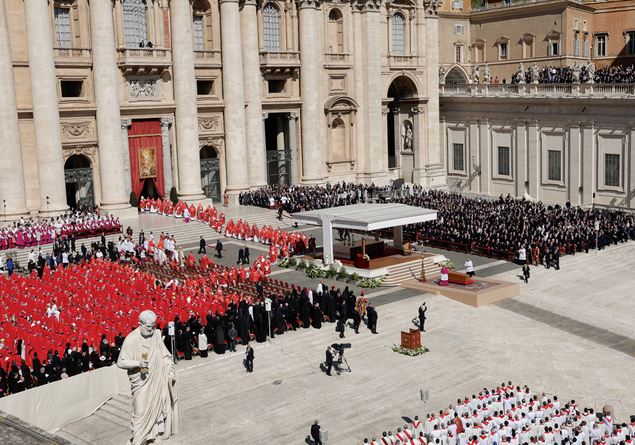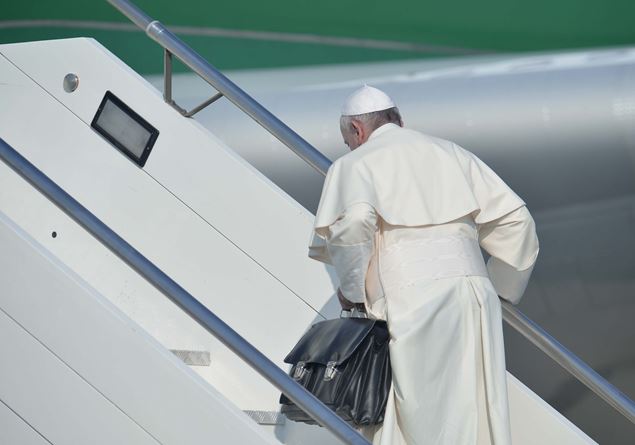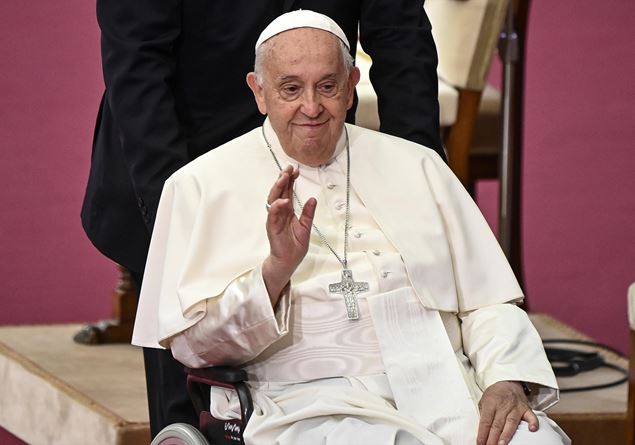Poverty, chastity and obedience as means to bring light to the men of our time as he defines “medicine for the soul”, meeting religious and religious “Capable of a mature and joyful relationship” because “I am a reflection of divine love”.
It is the feast of the Presentation of Jesus in the temple, at forty exact days from Christmas, and also the World Day of Consecrated Life.
Pope Francis in the Basilica of San Pietro presides the first Vespers with the suggestive ritual of the blessing and ignition of candles, symbol of Christ the light of the world.
The pontiff’s homily is aimed at religious and religious, many of whom were present in San Pietro, and starts from a phrase from the letter of Saint Paul to the Jews: «Here I come (…) to do, O God, the your will ». Francesco invites us to reflect “on how, through the votes of poverty, chastity and obedience, which you have professed“He says, addressing religious and religious,” you too can be carriers of light for women and men of our time “.
The Pope recalls that the “Light of poverty” He has “his roots in the very life of God, eternal and total mutual gift of the Father, the Son and the Holy Spirit. Thus exercising poverty “, he underlines,” the consecrated person, with a free and generous use of all things, is made for them with a blessing: it manifests their goodness in the order of love, rejects everything that can obscure the Beauty – selfishness, cupish, dependence, violent use and purposes of death – and instead embraces everything that can enhance it: Lto sobriety, generosity, sharing, solidarity».
The pontiff then focuses on the chastity To remember that “this also originates in the Trinity and manifests a” reflection of the infinite love that binds the three divine people “”. Castity as a prophetic element because, warns the Pope, “we live in a world often marked by distorted forms of affectivity, in which the principle of” what likes me “pushes to seek in the other more the satisfaction of one’s needs than the joy of a fruitful encounter. This generates, in relationships, attitudes of superficiality and precariousness, self -centeredness and hedonism, immaturity and moral irresponsibility, So they replace the bridegroom and the bride of all life with the partner of the moment, the children welcomed as a gift with those claimed as “right” or eliminated as “disorder”».
This is why, says the Pope, “in the face of the growing need for inner clarity in human relationships and humanization of the bonds between individuals and communities, Consecrated chastity shows a healing way from the evil of isolation to the twenty -first century man and woman, in the exercise of a free and freeding way of loving, which welcomes and respects everyone and does not force or reject anyone ».
The Pope, however, warns that it is “important, in our communities, take care of the spiritual and emotional growth of people, in the initial and permanent formation, because”, he underlines, “lCastity really shows the beauty of the love that is given, and do not take foot deleterious phenomena such as the inacidation of the heart or the ambiguity of the choicesa source of sadness and dissatisfaction and cause, sometimes, in more fragile subjects, of the development of real “double lives” ».
The last aspect examined by the Pope is the vote of obedience that religious make: «It is the light of the word that is made and response of love, a prophetic sign for our society, in which we tend to speak so much but to listen little: In the family, at work and especially on social media, where you can exchange rivers of words and images without ever meeting really, because you never really get involved for each other“Underlines the Pontiff,” consecrated obedience is an antidote to this lonely individualism, alternatively promoting a model of relationship based on an effective listening, in which “saying” and “feeling” follows the concreteness of “acting “, Also at the cost of giving up my tastes, my programs and preferences. Only in this way, in fact, can the person fully experience the joy of the gift, defeating loneliness and discovering the sense of his existence in the great project of God “.
The Pope concludes his homily by recalling another point: the “Return to the origins”, of which, he recalls, “today we speak so much in consecrated life. In this regard, the Word of God we listened to reminds us that the first and most important “return to the origins” of every consecration is, for all of us, that to Christ and his “yes” to the Father. It reminds us that the renewal, before with the meetings and the “round tables” – albeit very useful – is done in front of the tabernacle, In adoration, rediscovering their founders and founders above all as women and men of faith, and repeating with them, in prayer and in the offer of themselves: “Here I come (…) to make, O God, your will” ” .
